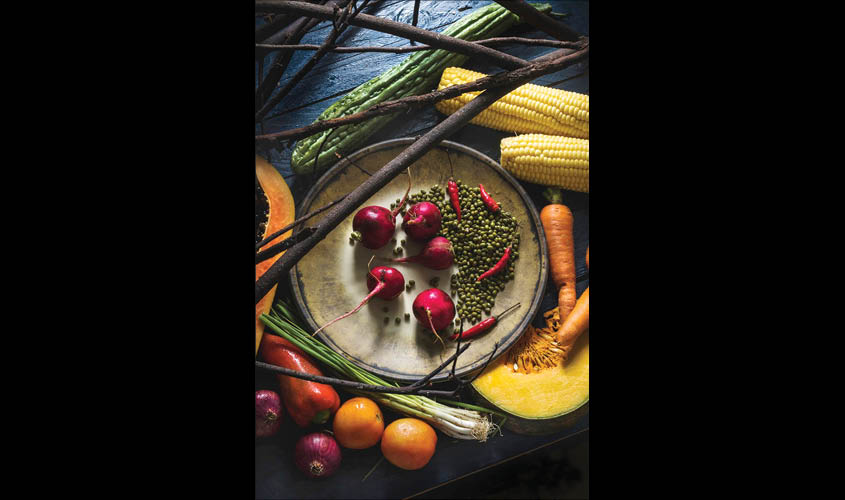The year 2018 has just ended. It saw some small, and some humongous changes on the food and nutrition landscape. Going ahead I foresee many more positive trends gaining momentum, as more and more people begin to correlate quality of food with quality of life. Below are the eight trends I see opening up as we enter 2019.
Healthy ageing triumph
One big news of 2017 has been the canning of the term anti-ageing. So our unhealthy obsession with all things anti ageing (food and supplements) hopefully will come to an end soon too. The mindset is slowly but surely changing towards healthy ageing solutions for all life stages. “Healthy ageing” definitely has a more positive sound to it—as it doesn’t promise silly unreachable goals. Food solutions tailored to this new terminology will hopefully be more practical and doable.
Mindful diet
“Mind” diet or foods and nutrients that can keep us happy and help prevent depression will continue to stay in focus. Here, lutein, a plant compound known for its role in delivering eye health will gain more prominence as it’s close relationship with our cognitive function and brain health is also now getting clearer. With depression and other mind disorders sweeping the world, it makes sense to keep a look out for this new happy nutrient on the horizon. Tip: you can get more lutein in your diet from leafy green vegetables like spinach, as well as pumpkin, peas, eggs and broccoli. Probiotic foods will also get another push as besides their proven gut benefits, their benefit to the mind has now been established. The relationship between the gut and the brain is becoming more important as we learning more about it, and I see this leading to more converts for probiotic and fermented foods. Next year along with more probiotic milks, dairy and other products I see more traditional fermented dishes too making their way back on our plates.
Plants will win
Vegetarian eating will continue to rule the roost and meat will no longer be considered the only good source of protein. Instead plant based protein will gain steam (seeds, lentils, quinoa, chickpeas, split peas…) and will increasingly provide energy, punch, taste to our diet. People will avoid consuming too much animal protein (as now it is a known carcinogenic), more and more meat-eaters will take days off meat, and more healthy options for plant-based healthy snacking will become available. I am talking about healthy versions of snack foods made from beans, coconut, nuts, whole grains, fruits and vegetables. The idea is to get a hefty dose of nutrients every time you snack (instead of empty calories). People will pick up more plant foods as a choice, not by force.
Moderation will rule
Even though I don’t quite agree with it, I think keto is here to stay, at least a little while longer, but the silver lining is that I already see a movement towards a mindset where people will stop oscillating towards extremes (vegan or keto), and hopefully settle down at finding a middle path of following moderation and becoming a flexitarian.
Saying no to processed
People will continue to avoid processed foods and their key ‘red flag’ ingredients: sodium and bad fats, and sugar will continue to be ‘not so sweet’ in 2019. The desire to avoid added sugar will remain strong, and more and more people will read labels more carefully, and learn to distinguish between added and naturally-occurring sugars in food.
High awareness quotient
Transparency expectancy in food has become mainstream and will continue into next year. People would want to know (even more) what they are eating, how it was made and what it’ll do for them, and transparency concerning GMOs will be at the forefront. Artisanal products, ingredients with a sustainability story, and simplicity in their ingredient list will come up trumps. Plus I also think the tradeoff between taste and nutrition is now almost dead. People will want and will demand both increasingly next year.
No to supplements
Although we’ll be more wellness-obsessed than ever, supplements will lose some of their glow, and their excess mindless popping will finally be on its way out. Instead, we’ll see more and more people shifting toward meeting nutrient needs with whole foods.
Eat it all
Finally the fight against food waste will continue with the “root-to-stem” movement gaining more strength, and the idea of using whole vegetables in recipes will becoming more mainstream. This will help reduce costs and waste, and also boost the nutrition quotient of the food we’ll eat.
2019 sure looks promising!
The writer is a Delhi-based nutritionist, weight management consultant, health columnist and author of ‘Don’t Diet!: 50 Habits of Thin People’ and ‘Ultimate Grandmother Hacks’.

